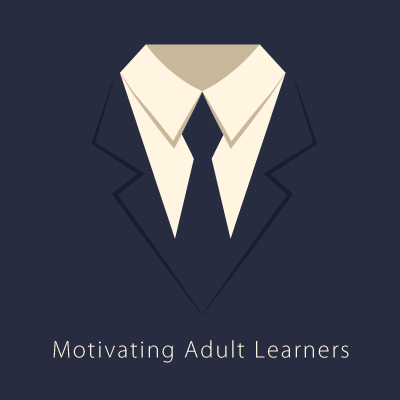How To Leave Teaching For Corporate Adult Learning
Teaching in a U.S. K-12 school can be one of the most rewarding careers ever. It can also be one of the most exhausting and underpaid professions [1]. While having the opportunity to shape the society of the future may sound remarkable, taking care of someone else’s children may not exactly strike the chord you were looking for in the orchestra of life. If you are a teacher, you may be wondering how long you can make it on your salary, manage the stress that your job induces, and accept the fact that there is not much room for upward mobility [2]. Transitioning into the field of corporate adult learning—also called Training and Development, Learning and Development, or Instructional Design—may be a viable option for you.
The U.S. Department of Labor’s Bureau of Labor Statistics estimates that the outlook for training and development specialist jobs will increase by 9% [3] in the next ten years—a much higher than average pace. Even training and development managers are increasing at the faster-than-average pace of 7%, boasting a $113k median salary as well.
Where To Begin
Once you have decided to make the switch from teaching to the corporate adult learning field, you will need to make a plan for your transition. How will you be able to prove to a future employer through your resume and interview that you can design learning for adults, utilize professional learning technologies, and keep accessibility in mind? It is more complex than simply applying for the next training and development job you see posted on LinkedIn. However, making a successful switch is possible.
To begin, start with some research online to find the differences between adult learning and K-12 learning—otherwise known as andragogy and pedagogy, respectively. You may come across things like Malcom Knowles’ principles of adult learning and other such resources that will begin to shift your thinking in regards to learning.
Gain Experience Working With Adults
Next, gain experience working with adults. If you are under a work contract, as many teachers are, or feel the need to stay where you are for another year or two, you can still begin gaining valuable experience toward your new career while remaining a K-12 teacher. The key is to gain experience working directly with adults instead of children. You can do this in a variety of ways within a school or school division.
1. Consider Presenting A New Instructional Activity That You Have Used At Your Next Department Meeting
You may feel like this is unrelated, but your audience is adult learners. You may be sharing something meant for K-12 students, but your learners, in this case, are adults, so keep that in mind in planning how you share.
2. Become The Next Leader Of Your Department
You may not feel qualified, but people retire, get new jobs, move, etc., all the time. A position like being a department leader would allow you to gain experience managing or providing support to adult learners.
3. Consider Presenting At The Next Local Or State Conference In Your Subject Matter
Each content area in K-12 has professional organizations and conferences either locally, at the state level, or nationally. Designing a conference presentation and conducting the session is a skill that could come into play in your future training and development position.
4. Apply To Be An Instructional Coach
Your school or school division may have instructional coaching positions. This is a job where you are working to support and create learning opportunities for adults to improve their workplace performance in your professional academic setting. This can be an excellent experience for a future career working with corporate adult learners.
5. Get A Part-Time Job Teaching Adults
Do you teach art, English as a Second Language, world language, history, or math? You may be able to teach a course through your community education program to help adults get their GED, pass their citizenship test, or speak another language. You will get an excellent feel for meeting the needs of adult learners in this setting.
There are numerous ways to get experience working with adults now instead of waiting until you start applying to jobs outside of K-12. Get started with pursuing one of these options today.
Gain Experience Working With Technology
When it comes to the field of training and development, technology skills go hand-in-hand with adult learning, so you will need experience working with professional learning technologies. If your skills in the basic Microsoft Suite are not up to date, it is time to brush up. Those who use technology with ease and who have a natural eye for design—color schemes, organization, and visually pleasing communication—may find it simpler to succeed in the technology side of the field.
In addition to knowing the ins and outs of PowerPoint, for example, you should gain exposure to some eLearning authoring software tools such as Adobe Captivate, Techsmith Camtasia, and Articulate Storyline 360 by obtaining trial versions and then learning how to use them on YouTube or LinkedIn Learning. With your temporary software trial, try to make a short project or two that you can put into an online digital portfolio that you can save for showing future employers when you are ready. Google Sites and Wix.com are two examples that offer free websites with portfolio templates that can be used to showcase your work.
Get Familiar With Section 508 Accessibility
Another skill that you can begin preparing for to best market yourself when you are ready to enter the field of corporate adult learning is that of Section 508 accessibility. You can read all about Section 508 accessibility here, but the basics in training and development are making learning opportunities accessible for people with varying disabilities. The U.S. government offers free online training that will begin to help you understand what accessibility is and how it applies to eLearning. You may also find helpful resources on YouTube or LinkedIn Learning as well.
Consider A Master’s Degree
Lastly, if you are not a self-starter and find yourself struggling with independently preparing yourself for a career switch, consider getting a master’s degree in Learning and Development, adult education, or Instructional Design and technology. These types of degree programs, if project-based and focused on practical skills, will propel you forward in your transition from K-12 to a corporate setting. Consider this list of degree options from the Association for Talent Development—a major organization in the field.
Rewrite Your Resume And Prepare For Interviews
When you are finally ready to apply for jobs in your new career field, you will need to rewrite your resume and keep some key interviewing skills in mind. When rewriting your resume, be honest, but focus on your work with adults, any design of instruction that you have done, and presentation or training experiences that you have conducted, no matter how small. If you have no professional work experience with adult learners, or if it is slim, do not be afraid of including a skills section in your resume where you can place your competencies in the various technology and software skills you have been developing.
If you are lucky enough to snag an interview, make sure to have a portfolio of your sample work ready to go. Again, focus on your work with adults and the skills that you have (even if they were developed through your work with children). Remember that if you are young, there will be other competing applicants with more years of professional experience, and if you are toward the middle to latter half of your career, remember that there will be other competing applicants who have grown up with technology at their fingertips. Both pose advantages and disadvantages but keeping this in mind will keep you on your toes throughout your job search process.
Final Thoughts
Transitioning from K-12 to corporate adult learning is possible. There is a plethora of opportunities that exist for K-12 teachers to begin gaining experience with adult learners right away, and there are free ways to gain technology skills that can transfer to professional portfolios and successful interviews. If you have just started considering this career switch, best of luck! Keep researching, studying, and learning. If you are toward the end, do the same and keep going. You will be glad you did.
References:
[1] Yes, teachers are underpaid. Here's how much high school teachers are underpaid in each state
[2] What Would a Real Teaching Career Look Like?
[3] Training and Development Specialists








